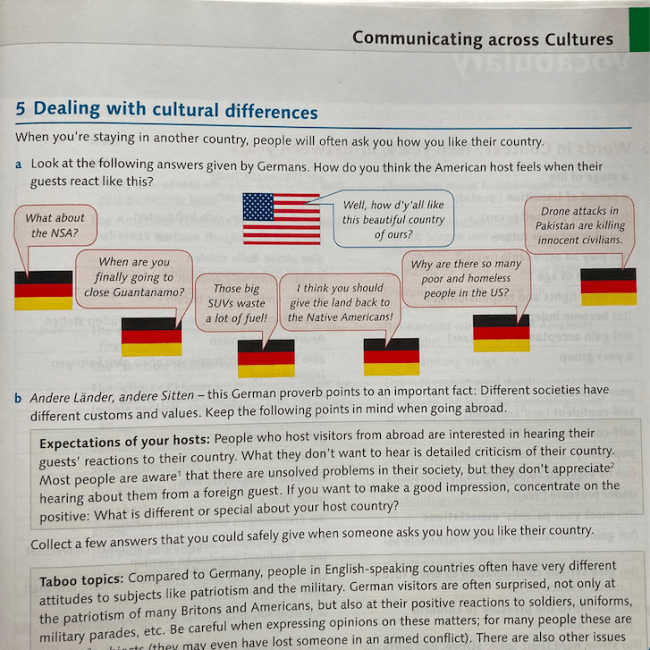Representations of America in Germany
“You’re from America, right?”
I can’t count how many times I’ve been asked this question over the last few weeks. Usually it is the segue into other questions which are often well intended, but blunt.
“Are Americans really as dumb as everyone says they are?”
“Could you buy a rocket launcher in America?”
“Do teens there really refrain from drinking until they’re 21?”
Often, I’m able to give a nuanced, carefully-worded answer. Other times, however, the questions address topics so complex that I struggle to find an answer that I’m satisfied with.
“How could Americans vote for Trump?
“How do you feel about living on Native American land?”
I recognize that for many of my classmates, I am influencing how they view the US, which can feel like a lot of pressure. Their questions do not necessarily reflect a negative attitude towards America. Like I said, these questions are usually well intended and come from a place of curiosity.
America has even worked its way into numerous aspects of German youth culture. Fashionable teenagers incorporate aspects of “Americancore” into their outfits (merchandise from American universities, for instance, is especially popular). As one of the other CIEE Bloggers, Sarah, mentioned in one of her posts, German slang is peppered with Anglicisms like “lost” or “cringe”. German teenagers sometimes listen to American music and watch movies and read books in English. It can feel strange to see parts of my home country and native language glorified, especially given some of the other ideas surrounding America here. Being American is cool -- but only in certain ways. For instance, when I use Anglicisms as slang, I pronounce them with a German accent.
Living in Germany has taught me just as much about German culture as it has about my own. For the first time in my life, I’m often the only American in the room. I’ve started treating questions about America as discussion starters rather than something for me alone to answer. I understand that my idea of “American” doesn’t always match up with the image of America that my peers have, and I’m learning to be okay with that. I do hope that, by the end of the year, I will have shared a different side of America with my community.
“So, which one do you like better? America or Germany?”
I don’t have an answer.
For further exploration: "So You're An American? A Guide to Answering Difficult Questions Abroad", written by the State Department


